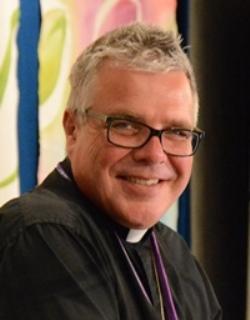
I love Christmas. I’m no Scrooge. But year by year I have become more distressed, if not depressed, by the consumerist bacchanalia which dominates our North American commemoration of Jesus’ birth.
Although we might try to deny it, most of us are quite aware of where we sit in humanity’s seating plan. We are a part of the 20% of the wold’s population that consumes 80% of its resources. And yet, in spite of our riches, in spite of our technological expertise and strength, many of us feel that we are dying of thirst. We seem to have everything, and yet more and more of us feel that when it’s all said and done, we are starving for that which has ultimate value! Ours is an age characterized by profound spiritual hunger and longing. As writer Anthony Giardina once wrote, “the best educated generation in history is anxiously in search of the one sentence that will teach us how to live!”
On a number of occasions I have had the opportunity to visit poorer nations in the Global South. To experience the life of the church and its people in contexts that are very different from here at home. And on each occasion, I have been powerfully impacted by the depth of spiritual strength and beauty that I have experienced in people whose lives are a never ending experience of horrific poverty, want and violence.
On one of these visits near the conclusion of the civil war in El Salvador, a group I was with had a meeting with Dean Brackley, an American Jesuit theologian at the Central American University in San Salvador, home to the community of Jesuits who were massacred by the Salvadoran military in 1989. A member of our group asked him, “Why is it,” he asked, “that we experience such a profound spiritual vitality here in the midst of such violence and poverty, while at home, in the midst of abundance we seem to be living in a kind of spiritual desert?”
Dean’s answer has stayed with me and given me cause for many hours of reflection since. “We in the North,” he replied, “because we have so much, have a permanent low-grade confusion about what is really important in life and because of that, it is much more difficult for us to live the life of a disciple.”
It has been said, and wisely so, that it is only by being little that we can ever discover anything that is big. This, I think, is one of the key points of the gospel, that blessedness, the new and abundant life that Jesus points toward, is always found in smallness and humility. And maybe the only way for us to experience the life and the hope that Jesus calls us to, is by taking the risk of making ourselves a little bit smaller and admitting that for us today, left only to our own devices, it is impossible.
St. Augustine once wrote that, “Hope has two lovely sisters; anger and courage. Anger, so that what must not be, will not be. Courage, so that what must be, shall be.” As we mark these holy days of Advent, may God grant us the gift of renewed hope, with enough anger to change that which must be changed and enough courage to become that to which we have been called to be! Who knows? Such gifts may make for a more holy Christmas.
